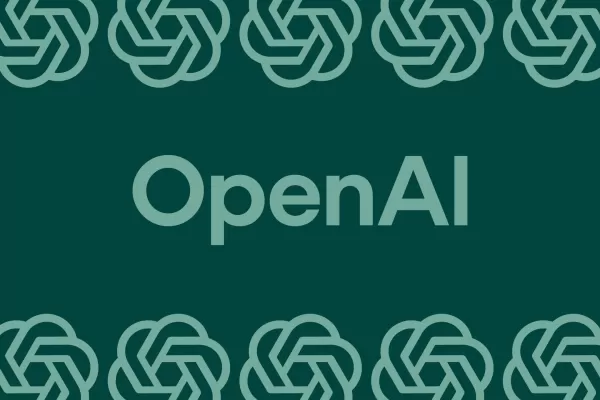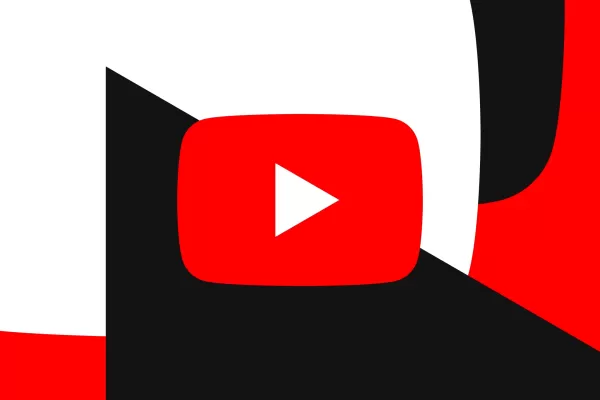Ziff Davis, Owner of IGN and CNET, Files Lawsuit Against OpenAI

Ziff Davis Files Copyright Infringement Lawsuit Against OpenAI
In a move that’s sent ripples through the tech and publishing worlds, Ziff Davis—a massive conglomerate behind brands like CNET, PCMag, IGN, and Everyday Health—has filed a lawsuit against OpenAI over allegations of copyright infringement. According to The New York Times, the lawsuit claims that OpenAI intentionally used Ziff Davis’ content without permission, creating “exact copies” of its work. This comes as one of the largest publishers yet to take legal action against the AI giant.
Ziff Davis, which owns more than 45 media brands and employs over 3,800 people, argues that despite explicitly instructing web crawlers to avoid scraping their content via a robots.txt file, OpenAI still managed to access and utilize their work. The complaint further states that OpenAI allegedly stripped away copyright information from the material it scraped, effectively erasing any trace of the original authors and publishers.
A Publisher’s Perspective
With a staggering output of nearly 2 million new articles annually and over 292 million monthly user visits across its platforms, Ziff Davis holds significant sway in the digital publishing space. Their concern lies in the fact that their content, crafted painstakingly by journalists and creators, now seems to be powering responses generated by ChatGPT—a tool that has become increasingly ubiquitous in both personal and professional contexts.
What’s at Stake?
Ziff Davis isn’t alone in taking legal action against OpenAI. Companies like The New York Times, The Intercept, Raw Story, AlterNet, and several Canadian media outlets are part of a growing coalition alleging similar violations. However, unlike some others who have opted for content licensing deals—such as The Verge, The Associated Press, The Atlantic, The Financial Times, and The Washington Post—Ziff Davis remains steadfast in its stance against exploitation of its intellectual property.
According to the lawsuit, Ziff Davis has already found hundreds of instances where its copyrighted material appears verbatim within OpenAI’s datasets. They’re seeking an injunction to halt OpenAI from further profiting from their content and demand the destruction of any models or datasets containing their work.
OpenAI’s Defense
Jason Deutrom, a spokesperson for OpenAI, responded to The Verge with a statement emphasizing the transformative role of ChatGPT in fostering creativity, advancing research, and improving everyday life for millions. He highlighted that their models operate under principles of fair use and rely on publicly available data. When asked for comment, Ziff Davis chose not to respond directly.
The Bigger Picture
This lawsuit raises critical questions about the boundaries of fair use in the age of artificial intelligence. As AI systems continue to evolve and integrate into various aspects of society, publishers and creators are grappling with how their work is being leveraged—and whether they receive proper credit or compensation for it. While some organizations see potential collaborations with AI companies, others remain cautious, prioritizing control over their intellectual property.
For now, the legal battle between Ziff Davis and OpenAI serves as a bellwether for future disputes in this rapidly changing landscape. Stay tuned as this story unfolds.
Related article
 Nonprofit leverages AI agents to boost charity fundraising efforts
While major tech corporations promote AI "agents" as productivity boosters for businesses, one nonprofit organization is demonstrating their potential for social good. Sage Future, a philanthropic research group backed by Open Philanthropy, recently
Nonprofit leverages AI agents to boost charity fundraising efforts
While major tech corporations promote AI "agents" as productivity boosters for businesses, one nonprofit organization is demonstrating their potential for social good. Sage Future, a philanthropic research group backed by Open Philanthropy, recently
 YouTube Integrates Veo 3 AI Video Tool Directly Into Shorts Platform
YouTube Shorts to Feature Veo 3 AI Video Model This SummerYouTube CEO Neal Mohan revealed during his Cannes Lions keynote that the platform's cutting-edge Veo 3 AI video generation technology will debut on YouTube Shorts later this summer. This follo
YouTube Integrates Veo 3 AI Video Tool Directly Into Shorts Platform
YouTube Shorts to Feature Veo 3 AI Video Model This SummerYouTube CEO Neal Mohan revealed during his Cannes Lions keynote that the platform's cutting-edge Veo 3 AI video generation technology will debut on YouTube Shorts later this summer. This follo
 Top AI Labs Warn Humanity Is Losing Grasp on Understanding AI Systems
In an unprecedented show of unity, researchers from OpenAI, Google DeepMind, Anthropic and Meta have set aside competitive differences to issue a collective warning about responsible AI development. Over 40 leading scientists from these typically riv
Comments (3)
0/200
Top AI Labs Warn Humanity Is Losing Grasp on Understanding AI Systems
In an unprecedented show of unity, researchers from OpenAI, Google DeepMind, Anthropic and Meta have set aside competitive differences to issue a collective warning about responsible AI development. Over 40 leading scientists from these typically riv
Comments (3)
0/200
![ThomasBaker]() ThomasBaker
ThomasBaker
 August 24, 2025 at 11:01:18 AM EDT
August 24, 2025 at 11:01:18 AM EDT
Wow, Ziff Davis suing OpenAI? That’s a bold move! Curious how this plays out—could shake up AI’s use of scraped data. 🍎


 0
0
![NicholasAdams]() NicholasAdams
NicholasAdams
 August 14, 2025 at 11:01:00 AM EDT
August 14, 2025 at 11:01:00 AM EDT
This lawsuit is wild! Ziff Davis going after OpenAI for copyright feels like a David vs. Goliath battle, but with algorithms. Curious how this will shake up AI content creation. 😬 Anyone else think this could set a big precedent?


 0
0
![RaymondAdams]() RaymondAdams
RaymondAdams
 August 4, 2025 at 2:01:00 AM EDT
August 4, 2025 at 2:01:00 AM EDT
This lawsuit is wild! Ziff Davis going after OpenAI for copyright stuff makes me wonder how AI’s gonna navigate these legal battles. Big drama in tech land! 🍎⚖️


 0
0

Ziff Davis Files Copyright Infringement Lawsuit Against OpenAI
In a move that’s sent ripples through the tech and publishing worlds, Ziff Davis—a massive conglomerate behind brands like CNET, PCMag, IGN, and Everyday Health—has filed a lawsuit against OpenAI over allegations of copyright infringement. According to The New York Times, the lawsuit claims that OpenAI intentionally used Ziff Davis’ content without permission, creating “exact copies” of its work. This comes as one of the largest publishers yet to take legal action against the AI giant.
Ziff Davis, which owns more than 45 media brands and employs over 3,800 people, argues that despite explicitly instructing web crawlers to avoid scraping their content via a robots.txt file, OpenAI still managed to access and utilize their work. The complaint further states that OpenAI allegedly stripped away copyright information from the material it scraped, effectively erasing any trace of the original authors and publishers.
A Publisher’s Perspective
With a staggering output of nearly 2 million new articles annually and over 292 million monthly user visits across its platforms, Ziff Davis holds significant sway in the digital publishing space. Their concern lies in the fact that their content, crafted painstakingly by journalists and creators, now seems to be powering responses generated by ChatGPT—a tool that has become increasingly ubiquitous in both personal and professional contexts.
What’s at Stake?
Ziff Davis isn’t alone in taking legal action against OpenAI. Companies like The New York Times, The Intercept, Raw Story, AlterNet, and several Canadian media outlets are part of a growing coalition alleging similar violations. However, unlike some others who have opted for content licensing deals—such as The Verge, The Associated Press, The Atlantic, The Financial Times, and The Washington Post—Ziff Davis remains steadfast in its stance against exploitation of its intellectual property.
According to the lawsuit, Ziff Davis has already found hundreds of instances where its copyrighted material appears verbatim within OpenAI’s datasets. They’re seeking an injunction to halt OpenAI from further profiting from their content and demand the destruction of any models or datasets containing their work.
OpenAI’s Defense
Jason Deutrom, a spokesperson for OpenAI, responded to The Verge with a statement emphasizing the transformative role of ChatGPT in fostering creativity, advancing research, and improving everyday life for millions. He highlighted that their models operate under principles of fair use and rely on publicly available data. When asked for comment, Ziff Davis chose not to respond directly.
The Bigger Picture
This lawsuit raises critical questions about the boundaries of fair use in the age of artificial intelligence. As AI systems continue to evolve and integrate into various aspects of society, publishers and creators are grappling with how their work is being leveraged—and whether they receive proper credit or compensation for it. While some organizations see potential collaborations with AI companies, others remain cautious, prioritizing control over their intellectual property.
For now, the legal battle between Ziff Davis and OpenAI serves as a bellwether for future disputes in this rapidly changing landscape. Stay tuned as this story unfolds.
 Nonprofit leverages AI agents to boost charity fundraising efforts
While major tech corporations promote AI "agents" as productivity boosters for businesses, one nonprofit organization is demonstrating their potential for social good. Sage Future, a philanthropic research group backed by Open Philanthropy, recently
Nonprofit leverages AI agents to boost charity fundraising efforts
While major tech corporations promote AI "agents" as productivity boosters for businesses, one nonprofit organization is demonstrating their potential for social good. Sage Future, a philanthropic research group backed by Open Philanthropy, recently
 YouTube Integrates Veo 3 AI Video Tool Directly Into Shorts Platform
YouTube Shorts to Feature Veo 3 AI Video Model This SummerYouTube CEO Neal Mohan revealed during his Cannes Lions keynote that the platform's cutting-edge Veo 3 AI video generation technology will debut on YouTube Shorts later this summer. This follo
YouTube Integrates Veo 3 AI Video Tool Directly Into Shorts Platform
YouTube Shorts to Feature Veo 3 AI Video Model This SummerYouTube CEO Neal Mohan revealed during his Cannes Lions keynote that the platform's cutting-edge Veo 3 AI video generation technology will debut on YouTube Shorts later this summer. This follo
 Top AI Labs Warn Humanity Is Losing Grasp on Understanding AI Systems
In an unprecedented show of unity, researchers from OpenAI, Google DeepMind, Anthropic and Meta have set aside competitive differences to issue a collective warning about responsible AI development. Over 40 leading scientists from these typically riv
Top AI Labs Warn Humanity Is Losing Grasp on Understanding AI Systems
In an unprecedented show of unity, researchers from OpenAI, Google DeepMind, Anthropic and Meta have set aside competitive differences to issue a collective warning about responsible AI development. Over 40 leading scientists from these typically riv
 August 24, 2025 at 11:01:18 AM EDT
August 24, 2025 at 11:01:18 AM EDT
Wow, Ziff Davis suing OpenAI? That’s a bold move! Curious how this plays out—could shake up AI’s use of scraped data. 🍎


 0
0
 August 14, 2025 at 11:01:00 AM EDT
August 14, 2025 at 11:01:00 AM EDT
This lawsuit is wild! Ziff Davis going after OpenAI for copyright feels like a David vs. Goliath battle, but with algorithms. Curious how this will shake up AI content creation. 😬 Anyone else think this could set a big precedent?


 0
0
 August 4, 2025 at 2:01:00 AM EDT
August 4, 2025 at 2:01:00 AM EDT
This lawsuit is wild! Ziff Davis going after OpenAI for copyright stuff makes me wonder how AI’s gonna navigate these legal battles. Big drama in tech land! 🍎⚖️


 0
0





























